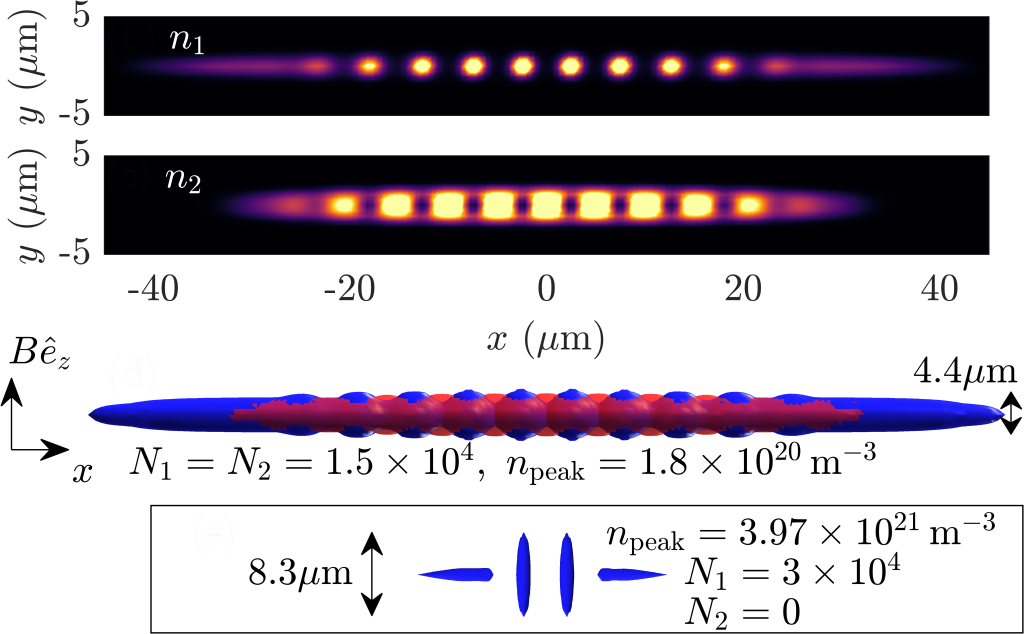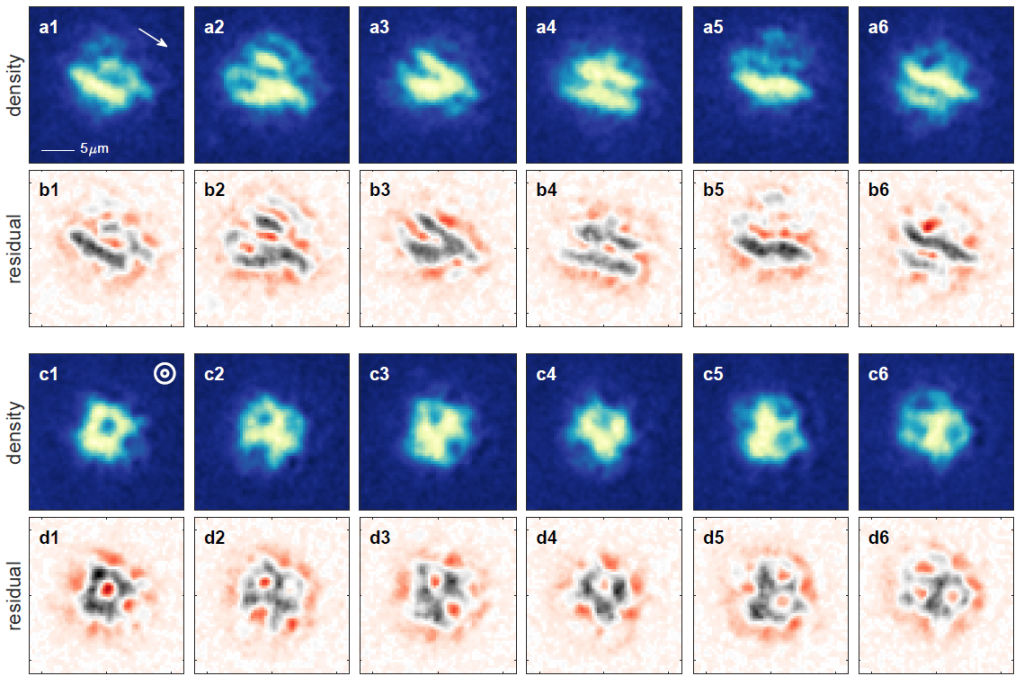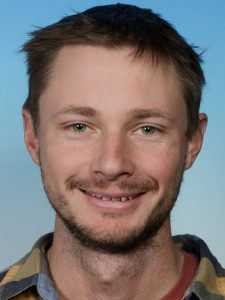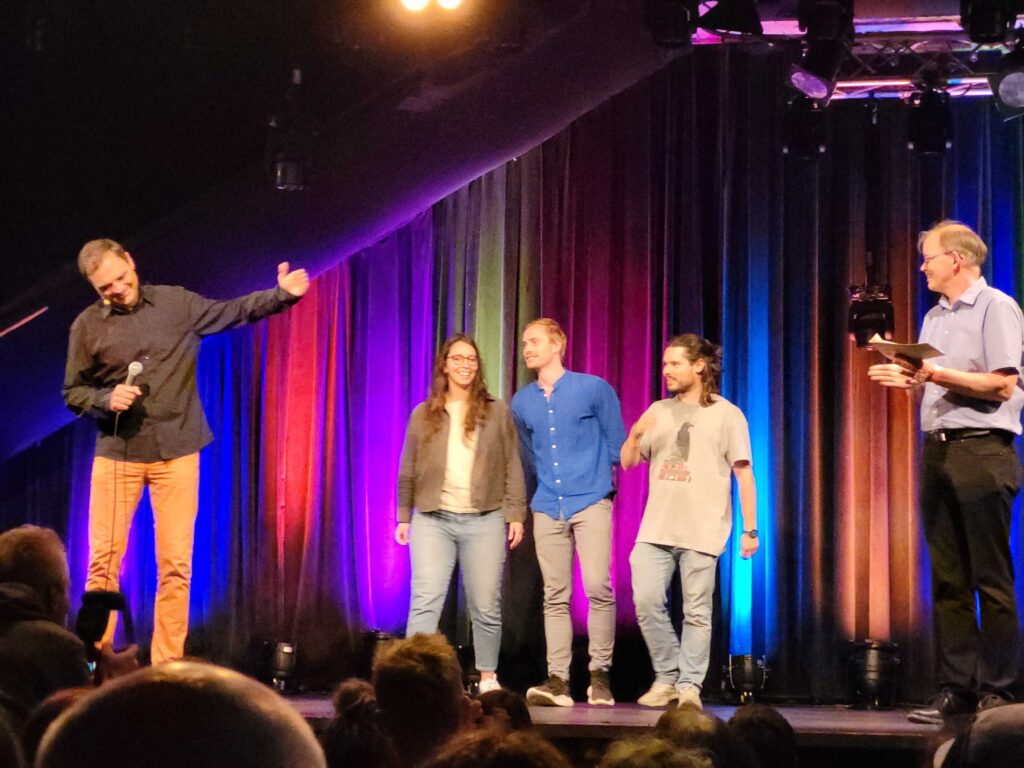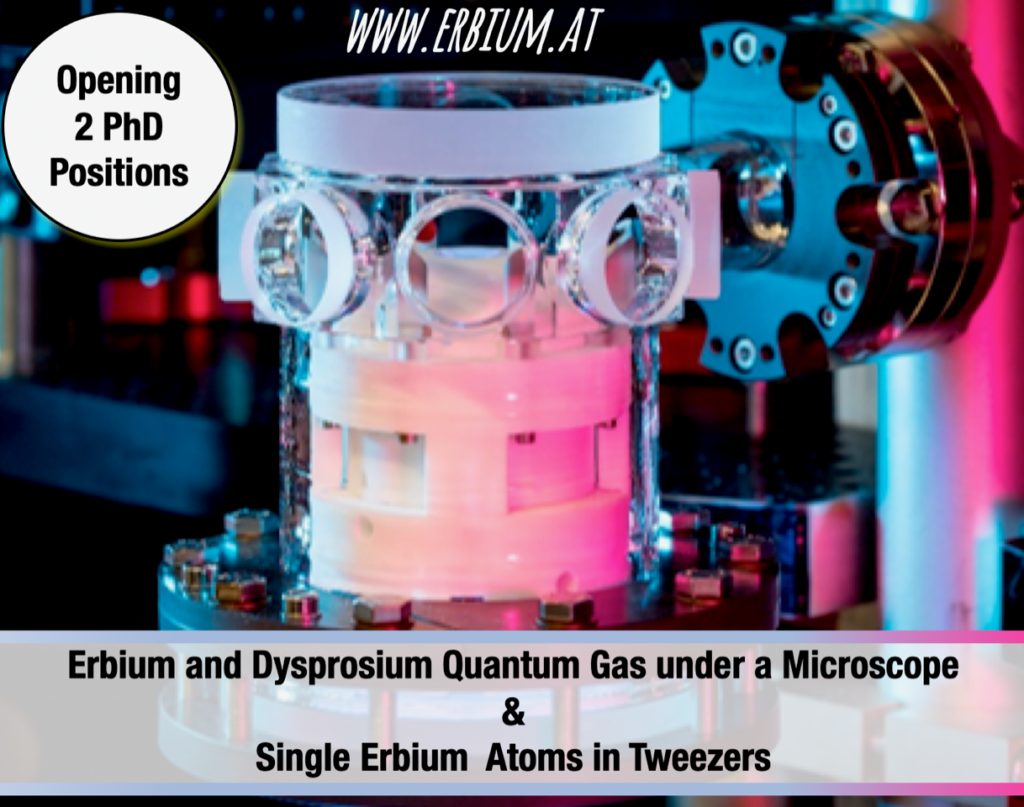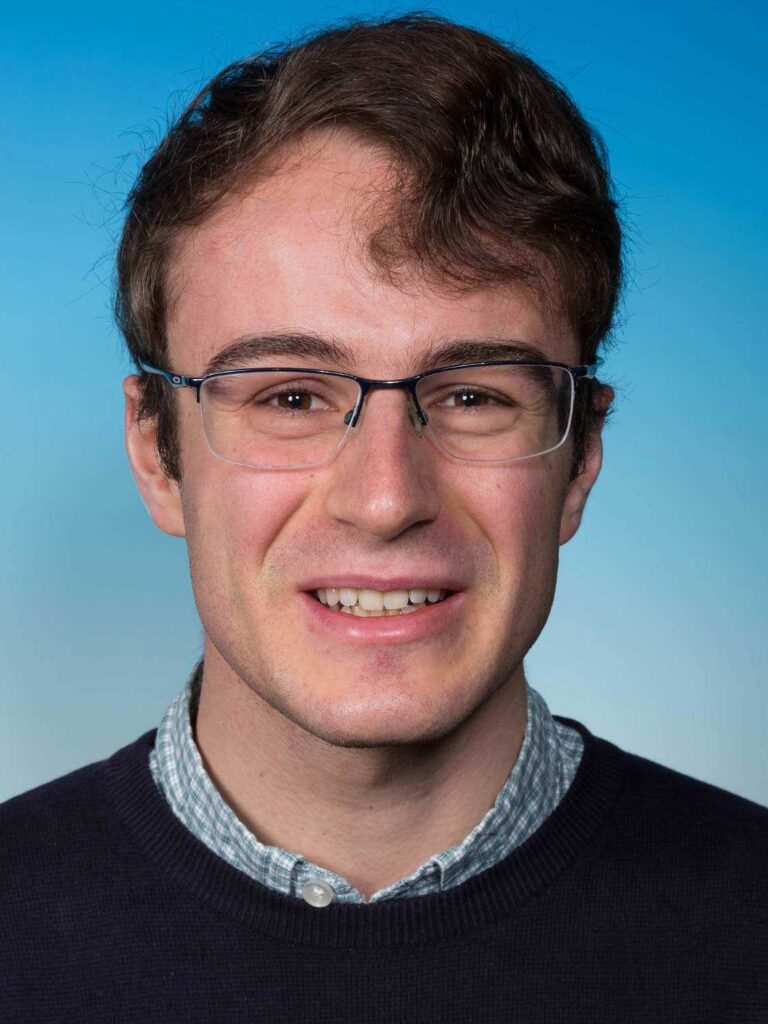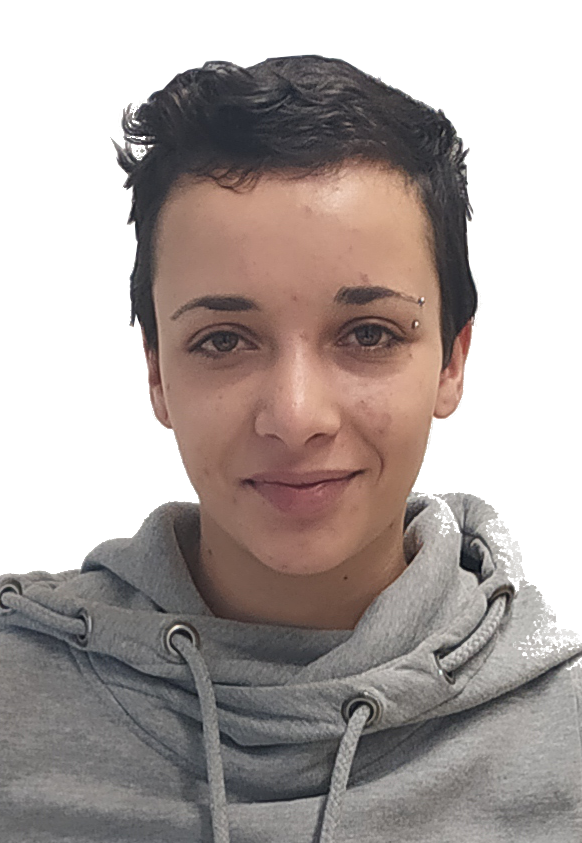
Welcome to the Quantum World!
Our group travelled to the Vienna City Hall for “Willkommen Quantenwelt” celebrating 100 years of quantum science. Thanks to Quantum Science Austria and collaborators for organizing this fantastic event!

2025 Group Openings!
We are happy to announce that our dipolar quantum gas group has an Academy Scientist + Postdoc and PhD positions open for 2025!

“Dance your PhD 2025” contest by Science and AAAS
Congratulations to our PhD student Arfor, who turned our research topics into a dazzling music video!

Vortices in a supersolid
2024’s Biggest Breakthroughs in Physics: Our research on the observation of vortices in a dipolar supersolid featured by Quanta magazine!

Austrian of the Year 2024
Francesca was crowned as the ‘Austrian of the Year’ in the research category at the Austria 24 gala by Die Presse!

Summer BBQ
Our 2024 Summer BBQ took place on the 24th of June and celebrated the many different achievements of the group!

Murder Mystery Dinner
Our 2024 group dinner took place on the 18th of January at CasoinN da Giorgio restaurant, with a 1920’s Murder Mystery theme!

Glitches in supersolids: links between neutron stars and quantum matter
By emulating the connection between a rotating supersolid phase and an external solid phase, we were able to replicate “glitches” – sudden jumps in the solid angular momentum driven by quantum vortices leaving the supersolid.

Cluster of Excellence Quantum Science Austria granted
Three Clusters of Excellence in Innsbruck have been funded! With highly endowed clusters of excellence, the Austrian Science Fund FWF creates Austrian flagships of basic research. The University of Innsbruck will coordinate the Cluster of Excellence for Quantum Sciences.

Bloch Oscillations
By letting an erbium quantum droplet fall under gravity through an optical lattice, it is possible to understand the inter-atomic interactions and quantum fluctuations through variations of the Bloch oscillation.
Our group studies dipolar quantum gases made of Erbium (Er) and Dysprosium (Dy) atoms. These extraordinarily magnetic species are a powerful new resource for reaching quantum simulation with strong connectivity, in which each atom is coupled to the other over long distances, and exploring exotic phases of matter that have no classical counterpart.
We have four labs: the ERBIUM LAB, where Er was Bose condensed for the first time ever; the Er-Dy LAB, which studies quantum dipolar mixtures under a quantum-gas microscope; the T-REQs LAB, where we trap Er atoms in arrays of optical tweezers for Rydberg physics; and the Dy-Yb LAB, currently under construction – this new experimental apparatus will be used to study many-body phases of highly-magnetic dysprosium and of mixtures with non-magnetic ytterbium. The Theory Group completes our team studying and predicting dipolar phenomena in dipolar quantum gases and mixtures.
The group, led by Francesca Ferlaino, is jointly located at the Institute for Experimental Physics (IExP) of the University of Innsbruck and at the Institute for Quantum Optics and Quantum Information (IQOQI) of the Austrian Academy of Sciences, and it is part of the Innsbruck Center for Ultracold Atoms and Quantum Gases.
Follow our group’s updates on Bluesky  and LinkedIn
and LinkedIn  !
!
News from the labs
In the T-REQS lab we have now loaded our first atoms into optical tweezers! This is an significant step towards our goal of producing arrays of single atoms within tweezers which we will use to study the interactions of Rydberg atoms.
Keep Reading ...
Now published in Phys. Rev. A together from researchers from the University of Hanover, we investigate supersolidity in binary dipolar gases.
Keep Reading ...
Now published in Nature Physics, we have observed the first vortices in a dipolar quantum gas! The dipolar interaction brings forth a plethora of new physics to vortices, that we begin to investigate finding the coveted stripe vortex lattice!
Keep Reading ...
Group news
Congratulations to former postdoc in the Er-Dy LAB, Dr. Matthew Norcia, who was awarded the IUPAP Early Career Scientist Prize In Atomic, Molecular And Optical Physics 2024.
Keep Reading ...
Congratulations to Arfor and Elena who, along with Alberto from the Grimm group, were crowned the winners of the DK ALM Science Slam 2024!
Keep Reading ...
We are happy to announce that our dipolar quantum gas group has two PhD positions open for 2024/2025!
Keep Reading ...
Welcome and goodbye
We bid goodbye to Ferdinand Claude at the end of June 2024! Dr. Claude joined the Erbium team as Post-doc at the end of 2022, and will be moving to the MajuLab in Singapore as a research fellow. Good luck at your new position, Ferdinand!
Keep Reading ...
Welcome to Clément Caille, who is joining the ERBIUM DYSPROSIUM lab for his Masters’ internship.
Keep Reading ...
We bade farewell to Amal El Arrach on the 15th of April 2024, when she defended her master thesis - congratulations!
Keep Reading ...
 and LinkedIn
and LinkedIn ![]() !
!











